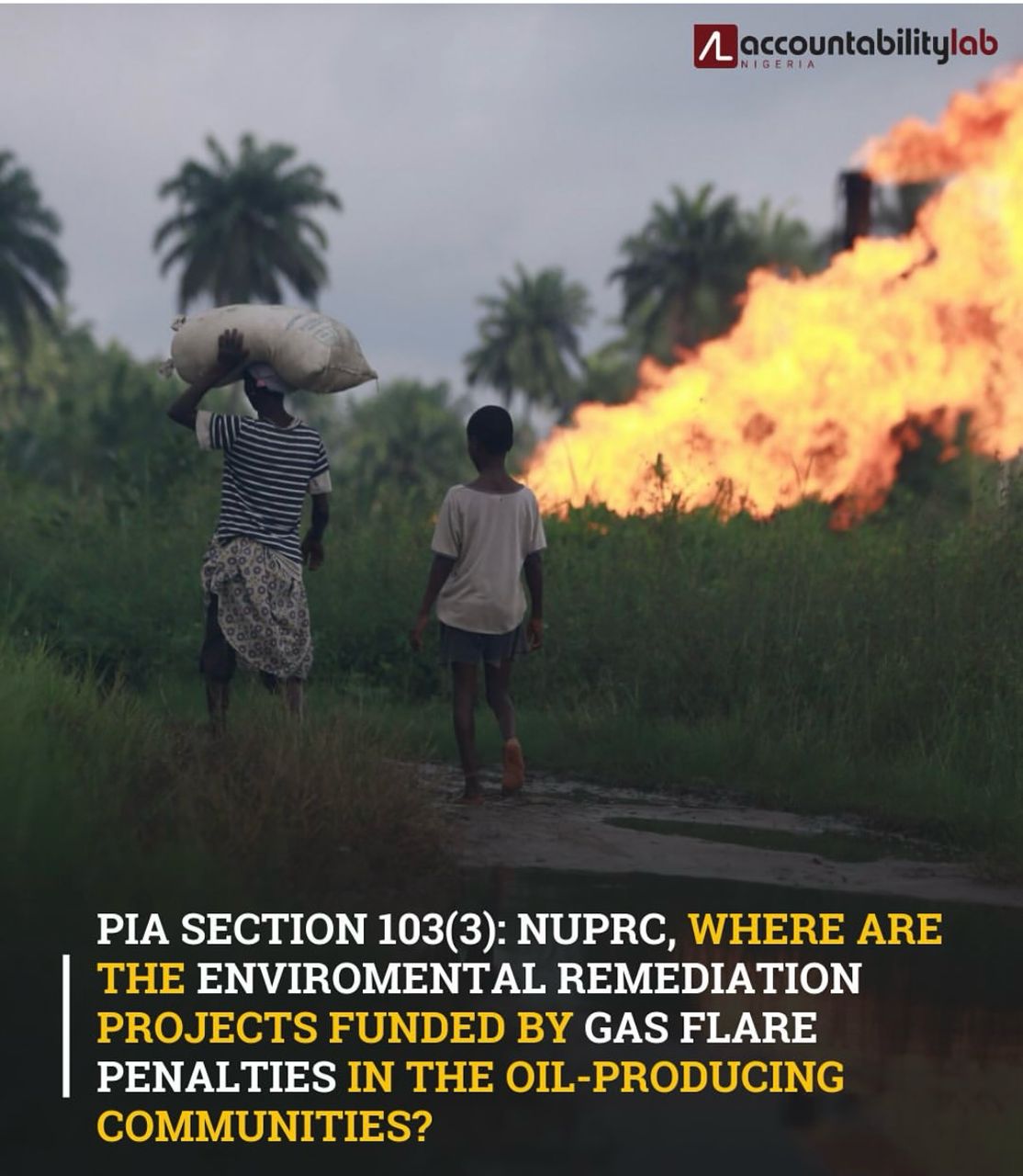NEWS
April 10, 2025

IN BRIEF
“The government and oil companies act like our suffering doesn’t matter. Our rivers, once full of fish, are dead. Our farmlands can no longer feed us. Even the air we breathe is making us sick. But this is our home; we have nowhere else to go.” – Nic, Imodje Community, Delta State. Billions of dollars meant for environmental remediation and community development in the Niger Delta remain unaccounted for. Yet, host communities continue to suffer the devastating effects of unchecked [...]
SHARE
“The government and oil companies act like our suffering doesn’t matter. Our rivers, once full of fish, are dead. Our farmlands can no longer feed us. Even the air we breathe is making us sick. But this is our home; we have nowhere else to go.” – Nic, Imodje Community, Delta State.
Billions of dollars meant for environmental remediation and community development in the Niger Delta remain unaccounted for. Yet, host communities continue to suffer the devastating effects of unchecked pollution, gas flaring, and ecosystem collapse to date. The Nigerian Upstream Petroleum Regulatory Commission (NUPRC) should publicly disclose oil companies’ contributions to the Host Community Development Trust Fund (HCDTF) and how collected gas flare penalties are being used for environmental remediation.
Amid growing concerns over public financial mismanagement, Accountability Lab Nigeria, the International Centre for Investigative Reporting, and affected communities demand full transparency in the management of gas flare penalties, the HCDTF, and environmental remediation efforts. The Petroleum Industry Act (PIA) 2021 was enacted to ensure that oil-producing communities benefit from extractive activities, yet evidence suggests these funds are not serving their intended purpose. Instead of prioritizing affected oil-producing communities, powerful political and business elites appear to be diverting HCDTF resources for personal interests, leaving the communities to bear the burden of environmental damage.
NUPRC must immediately release a full report on gas flare penalties, planned and implemented remediation projects, and oil company contributions to the HCDTF.
BILLIONS UNACCOUNTED FOR IN GAS FLARE PENALTIES
Despite regulatory provisions, the NUPRC has failed to provide a transparent account of gas flare penalties collected. According to the National Oil Spill Detection and Response Agency (NOSDRA) Gas Flare Tracker, oil companies were expected to pay over ₦800 billion in gas flare penalties in 2024. However, data from the NUPRC shows that only N309.5 billion has been accounted for in its 2023 annual revenue report: N98.5 billion in 2021, N70.4 billion in 2022, and N140.5 billion in 2023. Despite these collections, there is little to no evidence of funded environmental remediation projects in oil-producing communities, where residents continue to suffer from toxic gas flaring, polluted farmlands, and destroyed livelihoods. If these penalties are truly meant to address environmental damage, why are communities still in ruins? NUPRC must disclose how these funds are being used and ensure they serve their intended purpose. Oil-producing communities deserve justice.
This raises urgent concerns about the integrity of Nigeria’s environmental remediation framework. Section 103 of the PIA 2021 mandates the establishment of the Upstream Environmental Remediation Fund to finance the rehabilitation and management of environmental damage caused by oil and gas operations. The Upstream Environmental Remediation Fund Regulations further require that this fund, administered by the commission, be transparently managed, with proper accounts maintained and an annual statement published within 180 days after the end of each financial year. Yet, no public records exist detailing how the gas flare penalties received have been allocated or utilized for environmental projects.
The NUPRC must uphold its responsibility under the United Nations Guiding Principles (UNGPs) on Business and Human Rights by ensuring access to remedy, protection, and accountability for oil-producing communities. NUPRC is failing in its duty to protect oil-producing communities; safeguarding the communities from corporate harm, guaranteeing their fair compensation, and ensuring effective redress mechanisms. Without immediate corrective action, NUPRC risks further entrenching impunity in the extractive sector, allowing environmental and human rights abuses to persist unchecked.
COMMUNITIES LEFT IN ENVIRONMENTAL RUIN
People who live in oil-producing areas in the Niger Delta, such as Uzere in Isoko South LGA and Utagba Ogbe in Ndokwa West LGA, are still dealing with the terrible effects of gas flaring, flooding, and ecosystem damage. Despite NUPRC’s reported collection of N309.5 billion, there is no evidence of funded remediation or relief projects as stipulated by the PIA.
Meanwhile, oil companies have amassed over ₦800 billion in additional gas flare penalties, yet these funds remain out of reach for communities suffering from health hazards, displacement, and loss of livelihoods. The failure to deploy these funds as intended undermines the very essence of the PIA’s environmental safeguards and raises critical questions about NUPRC’s role in ensuring accountability.
TRANSPARENCY DEMANDS
- Publish all gas flare penalty collections and HCDTF contributions;
- Disclose the discrepancy between expected and received penalties;
- Comply with Freedom of Information (FOI) requests and ensure oil companies comply fully with remediation obligations;
- Audit the Upstream Environmental Remediation Fund, gas flare penalties, HCDTF, and publish annual statements.
GOVERNANCE REFORMS
- Prioritize elected community representatives, not political appointees, in HCDTF governance (Board of Trustees, Management Committees, and Advisory Committees);
- Enforce full compliance from oil companies on penalty payments and remediation projects;
- Use funds transparently to address environmental damage and compensate affected communities.
We demand transparency, not secrecy. We demand action, not excuses. Accountability is not optional; it should be a norm!
